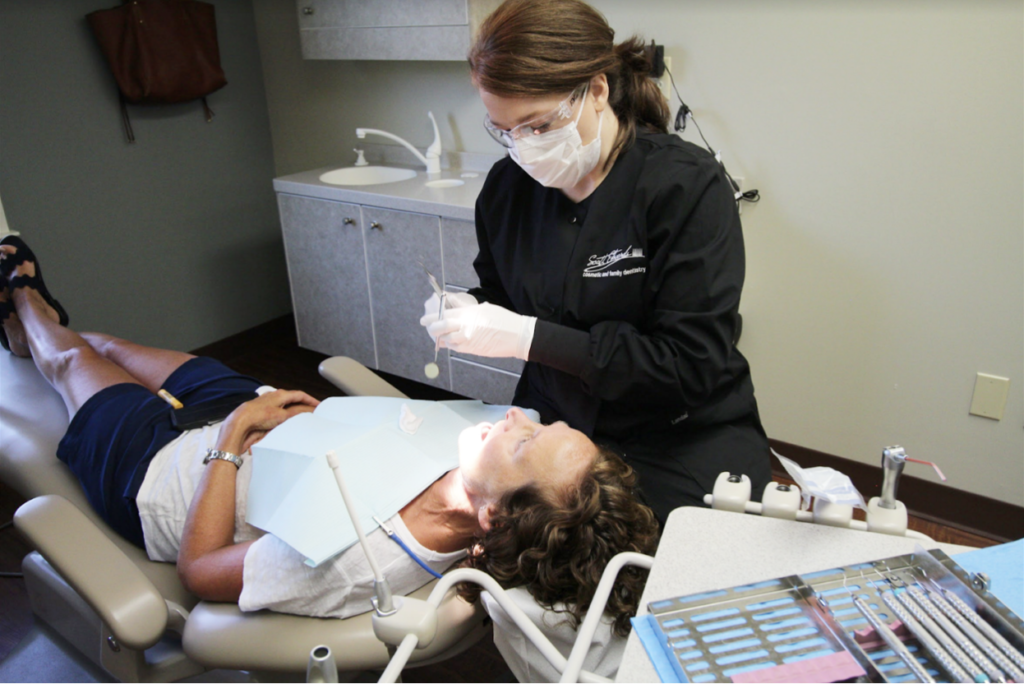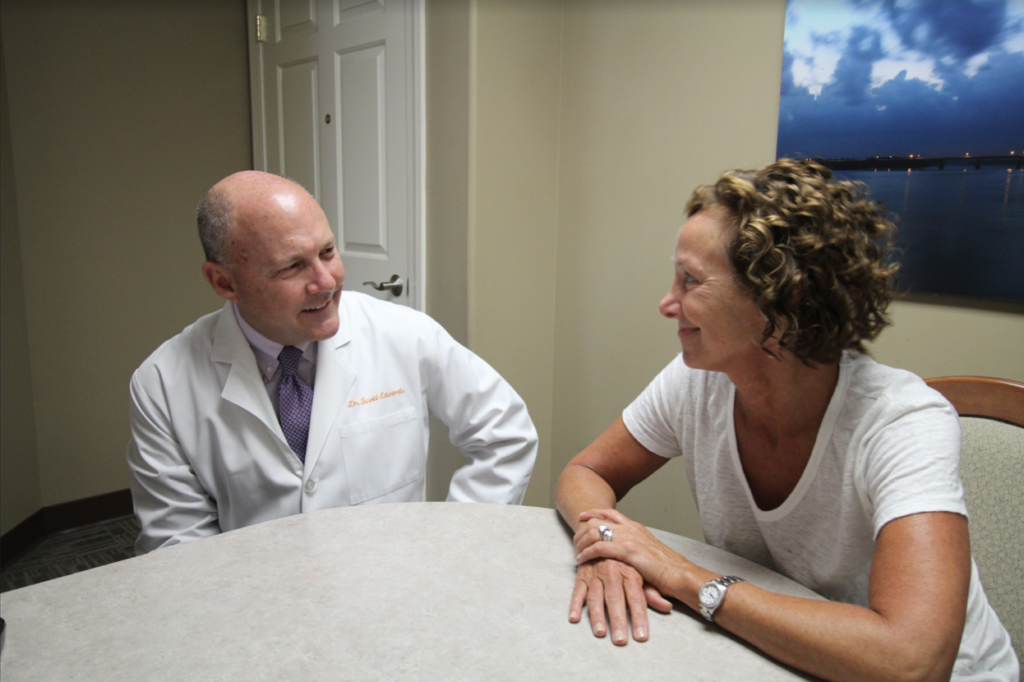Everyone deserves a beautiful smile. However, certain health issues or oral injuries can keep us from expressing our full shine. In these cases, dentures offer us a chance to restore our smiles to their fuller selves. At Scott Edwards DDS, we want our patients to enjoy all the health and aesthetic benefits of dental treatment. To help you out, let’s take a look at the benefits of dentures and whether they’re the right options for you.
What are dentures?
Dentures are removable appliances that can replace missing teeth and help restore your smile. They are made of either metal or acrylic material. A ‘complete’ or ‘full’ denture replaces all the natural teeth in either the upper or lower jaw. If you’ve lost your natural teeth, whether from gum disease, tooth decay, or injury, replacing missing teeth can improve your oral health
Dentures can help fill out the appearance of your face and profile. They can be made to closely resemble your natural teeth so that your appearance does not change much. Dentures may even improve the look of your smile. All of this can help improve your overall confidence and self-esteem!
Many oral health issues can be addressed with dentures. Let’s take a look at different signs that you may need denture treatment.
#1 You have chronic toothaches
Severe tooth pain can mean that decay has progressed to the point where it is attacking the nerve in the center of the tooth. If caught early, tooth decay can be treated with a dental filling. If it reaches an advanced stage, teeth may have to be removed or a partial denture may be necessary.
#2 You often hide your smile because of missing or damaged teeth.
Many denture wearers say they smile much more often after getting dentures. Missing or damaged teeth can impact your self-perception, which affects how often you show your smile. This can be avoided by brushing, flossing, and regularly visiting your dentist. However, if you’ve already experienced damage to your teeth, dentures can help give you a full smile again.
#3 You have red, swollen, or bleeding gums
Irritated gums can be a sign of early-stage gingivitis or periodontal disease. Gum disease is the cause of approximately 70% of adult tooth loss, and affects three out of four people at some point in their lives. In the early stages, gum disease can be halted or reversed with a dentist’s cleaning and improved oral hygiene. However, if it is left untreated, gum disease can progress to bone loss, tooth loss, and possible dentures. If you remember to brush and check your gums, you can avoid these issues.
#4 You have frequent indigestion
When patients can’t chew their food properly, they often end up swallowing bigger pieces of food. Without proper grinding and chewing of food particles, larger pieces of food can be hard on your stomach and digestive system. Dr. Edwards and Dr. Prince can help determine if problem teeth are the root cause of your indigestion. Dentures can help ease the digestive process so you can get the nutrients you need.

#5 You struggle with eating some types of foods
Difficulty eating certain foods might be caused by a cracked tooth, missing teeth, cavities, or gum disease. This can lead to malnourishment because your body is not receiving proper nutrients. Teeth can be saved if patients catch the problem early. However, long-term problems can often be corrected with the use of dentures.
#6 You have one or more missing teeth.
Dental experts recommend that people who have lost multiple teeth seek prosthesis to prevent excessive pressure on the remaining teeth. However, when patients are depending on the use of fewer teeth, there is a greater chance of losing more teeth in the future. This is because the remaining teeth are worn down prematurely or shift into open spaces in the gum line. A full set of teeth has many oral health benefits, and dentures can help fill in the space.
#7 You have gaps between your teeth or your teeth are loose and shifting.
Loose teeth often are a sign of advanced gum disease. In such cases, extensive periodontal treatment might be needed, or these teeth might have to be extracted. Dentures can substitute these loose or gapped teeth.
#8 You don’t visit the dentist every six months
Visiting the dentist is essential to oral health. These bi-annual visits keep gum disease and tooth decay in check and allow your dentist to keep an eye on any changes to your teeth and gums. More importantly, when oral health problems are small, they are more easily corrected. However, once cavities and periodontal problems take hold, teeth may need to be extracted and this can quickly snowball into the need for dentures. Our team of dentists has the experience necessary to help you identify any problems and correct them!

Trust Scott Edwards, DDS
Dr. Scott Edwards and Dr. Julia Prince have forty years of experience between them. They are committed to providing the highest caliber of dental care in a friendly and relaxed atmosphere for your entire family’s oral health. We treat you like you would treat you. We give you all the knowledge you need to make your best oral hygiene decisions. For any questions or more tips on helping you take care of your teeth, give us a call or schedule an appointment at our East Memphis or Midtown offices today!
